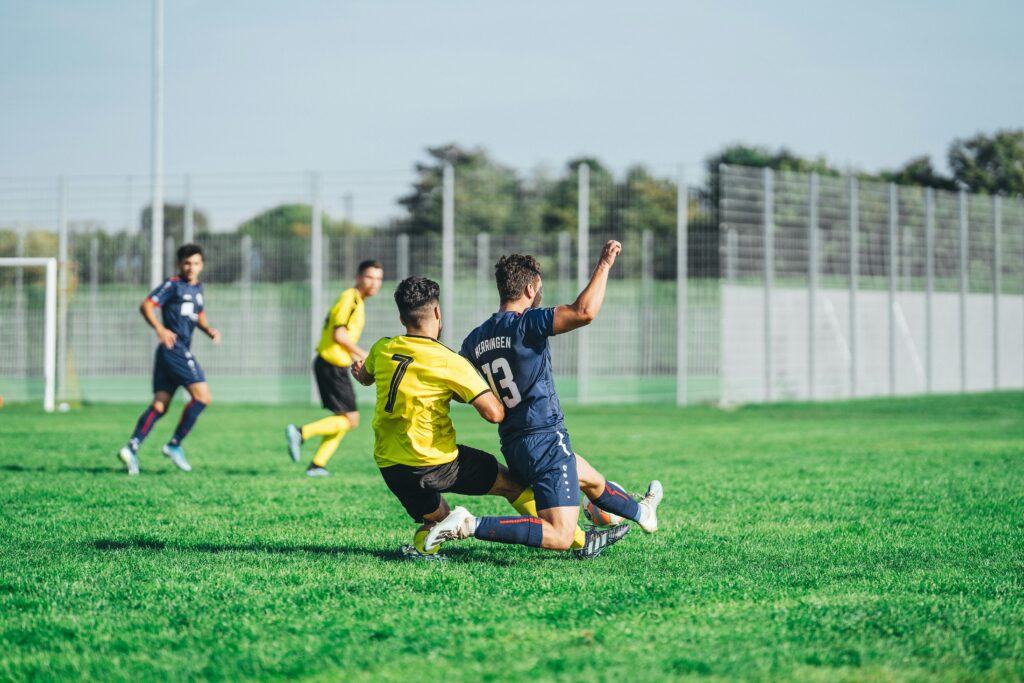Throughout my career, I’ve worked with many students, especially teenage boys, who struggle with academics and with motivation surrounding school. The fact that this phenomenon afflicts teenage boys most readily is a consequence of several factors, including biology and the fact that our school system does not frequently cater to the unique needs of boys.
While that’s a discussion for another day, I have also discovered that many of these boys who are not particularly motivated in and by school are highly athletic and interested in playing and/or watching sports. As such, I’ve found that meeting these students where they and their interests are is essential for connecting with these students and helping them succeed in school and beyond.
Given the interest in sports, using sports analogies is a particularly effective strategy for helping many students understand and implement the lessons and strategies I am teaching them. One of the phrases I came up with and use frequently is based on the question:
Would you sit down in the field during a difficult game?
The answer I always get is something along the lines of, “Of course not!” Which is, of course, the thinking I am hoping these students will engage in. They are absolutely correct, and anyone who has ever played or watched sports knows this to be true; Just because the game is tough, we (or the players) are exhausted, and it seems like a loss is imminent, you would never just give up and sit down.
You play on and continue to give the best effort you can for yourself, for your teammates, and because it’s just what you do. It’s literally unimaginable that someone playing competitive sports would just lie down in the field (barring injury, of course) because the game was difficult or they just didn’t feel like playing anymore.

Not only do I present this idea to students, but I often have them visualize a professional athlete they look up to and/or themselves on the field, literally giving up and sitting or laying down. Not only do they typically scoff at this mental image, but they feel a sense of shame/resolve to not be that person.
While this lesson needs consistent reinforcement, it is a powerful tool to help students activate their own motivation and dedication to school. You don’t have to love something to do it to completion; in fact, there is glory and honor in finishing the game or anything else when the odds are against you and you are fighting a seemingly losing battle.
A specific example would be a student who isn’t well-prepared for a test, but nonetheless is taking it anyway. Instead of just sitting there and giving up (thereby taking a zero), this lesson can help students understand that they should keep going: do their best, use what they do know, engage in guesswork, and finish the test with their head held high.
Using this and other simple analogies can greatly help students who are struggling with motivation for school and don’t care about their grades or future academic prospects. Showing students that finishing their work, attending classes, and following through on their academic responsibilities is the same as finishing a difficult game or match can go a long way towards helping them feel a sense of responsibility to their work.
Not only is this lesson relevant for students, but we can and should apply this to all areas of life. Perseverance is an important quality for life success, as there will always be challenging moments and seasons of life. That is an inescapable aspect of the human condition, yet we don’t do a great job of teaching perseverance as a society and too often enable giving up.
We’ve all heard the phrase: When the going gets tough, the tough get going. While this may seem obvious, it’s not always easy to actually do as a person. We all know the feeling of wanting to give up, or simply sit down in the middle of the field. But those people who have learned how to persevere, including in academic settings, are able to keep moving forward, however they know how, during challenging times.
